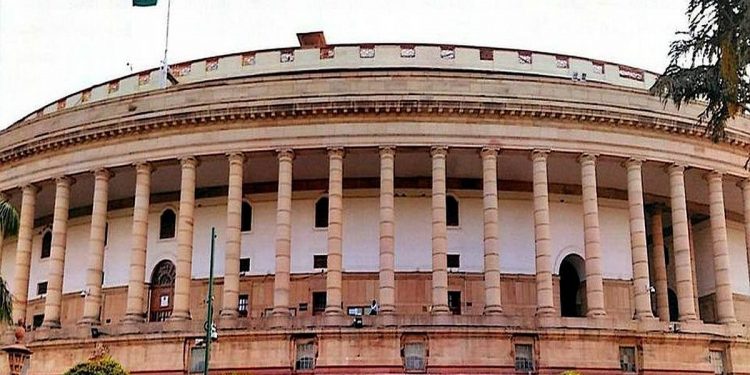New Delhi: Noting that over two lakh grievances have been received against two ministries and around 50,000-1 lakh grievances against eight others, a Parliamentary Committee has asked the Centre to constitute social audit panels to identify core grievance-prone areas and streamline their systems
In its recent report, the panel recommended to the Department of Administrative Reforms and Public Grievances (DARPG) to progressively bring down the maximum time limit for grievance redressal from 60 to 45 days.
The Committee is concerned to note that 50,000-1 lakh grievances have been received against 8 ministries/departments; 1 lakh to 2 lakh grievances against four ministries/departments; more than 2 lakh grievances against two ministries/departments during the period between 2018 and 2020, it said.
“The Committee recommends the Department to instruct the ministries/departments of central government to constitute social audit panels to identify core grievance prone areas and streamline their systems accordingly,” the Department-Related Parliamentary Standing Committee on Personnel, Public Grievances, Law and Justice said in its 106th report on Demands for Grants (2021-22) of the Ministry of Personnel, Public Grievances and Pensions.
The government of India has established the Centralised Public Grievance Redress and Monitoring System (CPGRAMS), an online system for grievance redressal.
This system facilitates citizens to lodge their grievances to ministries/ departments/ organisations/ state governments/ UTs, which scrutinise and take action for speedy and favourable redress of these grievances.
A separate work flow and functionality for grievances to appeal authorities in CPGRAMS has been operationalised in CPGRAMS. The time line for resolution of an appeal by the nodal appellate authority is 30 days of receipt of the same, according to the report.
The Committee appreciated the department for institutionalizing an appellate mechanism in CPGRAMS.
“The Committee is of the view that the success of any initiative depends upon the extent of its reachability to targeted population groups. The Committee notes that CPGRAMS portal is currently operational in Hindi and English. Since CPGRAMS also receives and directs grievances against state governments and UTs, the Committee is of the opinion that CPGRAMS portal should be operationalised in all Scheduled languages,” said the report tabled in Parliament on March 16.
The Committee also emphasizes that the department should publicise the portal through all possible means including the print and electronic media so that the benefits of the grievance redressal mechanism percolate down to those at the bottom of the pyramid, it said.
The Committee also recommends the department to develop an Interactive Voice Response System for registration of grievances for the benefit of people who inhabit remote areas and have no proper access to the internet, the report said.
As regards the redressal of grievances by states/UTs, the Committee noted that the percentage of grievance disposal is not satisfactory.
“The Committee recommends the department to develop a ‘Grievance Redressal Index’ on the lines of Good Governance Index to rank organizations of GOI and states/UTs on parameters that are output and outcome-oriented,” it said.
The Committee believes that such index will present organisation-wise and state-wise comparative picture and provide valuable insights about strong areas and weak areas which in turn would help in improving their performance, the report said.
One nation One portal is the goal of the department in resolving the grievances and towards this end integration of CPGRAMS with state grievance portals is being pursued, it said.
As on date, 12 states/UTs portals including J-K, Jharkhand, Karnataka, Kerala, Punjab, Rajasthan, Uttar Pradesh, Uttarakhand, Meghalaya, Goa, Himachal Pradesh, Madhya Pradesh have been integrated with CPGRAMS portal, the report said, adding that “the integration of remaining state portals is under process”.
“The Committee believes that integration of state portals with CPGRAMS under ‘One Nation-One Portal’ will obviate the need to log into multiple portals for lodging complaints. The Department may gradually integrate District level portals with CPGRAMS so that CPGRAMS will serve as a single window interface for lodging grievances,” it said.
The Committee feels that poor and the marginalized should be able to reap the benefits of CPGRAMS, the report said.
“For this to happen, there should be a mechanism in place to take note of grievances involving larger public interest featuring in newspapers. The Committee is happy to note that the Department has already taken an initiative in this regard. The Committee recommends the Department to impress upon ministries/departments of the central government to set up such mechanism at the earliest and monitor the action taken by them,” it said.
The Committee said it has been apprised that there are 5,538 grievances pending against ministries/ departments for more than one year.
“The Committee recommends the Directors of Public Grievances of concerned ministries/departments to hold Jan Sunvais and dispose of grievances pending for more than one year at the earliest. Similarly, top 20 grievance receiving ministries/departments may dedicate a day every month for hearing the grievances of citizens,” the report said.
PTI






































